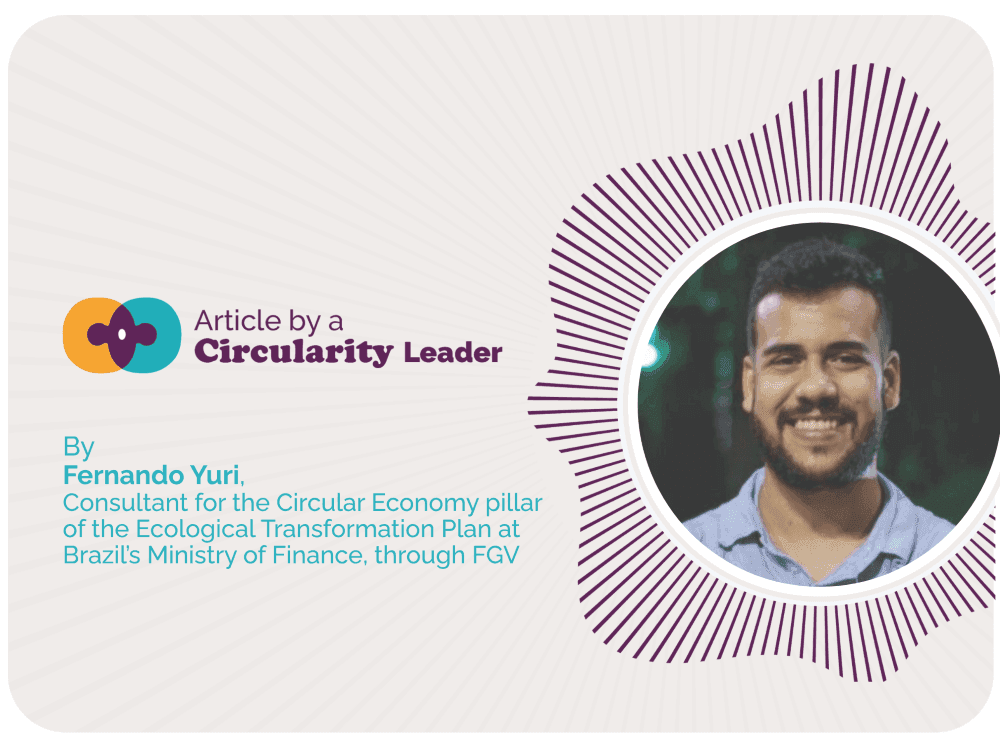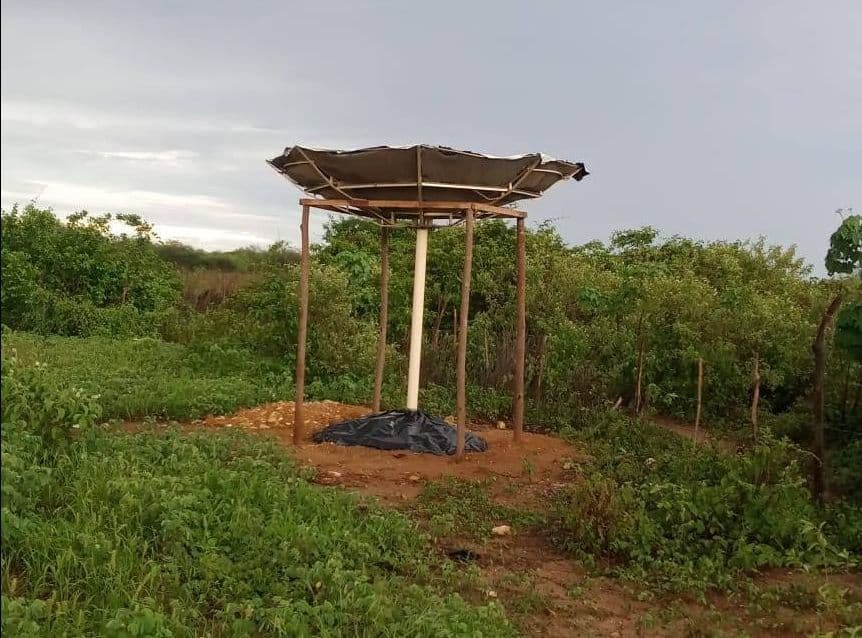
19/12/2023
Circularity that inspires, creates opportunities, and transforms lives
By Arlene Carvalho, from the Circular Movement
Consider the equation: eager young students looking to discover new opportunities + educators encouraging their students to explore and experiment with science beyond the classroom walls + enduring challenges in the community that have always awaited solutions + the application of the Circular Economy concept. What is the result? The most circular project in Latin America!
We are talking about the winner of the 1st International World Without Waste Award, whose final took place earlier this month. This project originated directly from the Northeast of Brazil and aims to address drought in regions where water is scarce. Titled "Low-Cost Rainwater Collection and Storage System: An Alternative to Combat Drought in the Northeast Semi-Arid Region," the project is authored by student Vitória Sabrina da Silva Leite and teacher Antônio Serginaldo de Oliveira Bezerra, both from Monsenhor Raimundo Gurgel State School in Mossoró, Rio Grande do Norte.
The initiative encompasses agricultural sciences, circularity, and engineering, and it boils down to a low-cost cistern that collects and stores rainwater during drought periods in the Northeast semi-arid region, constructed with reused and/or very low-cost materials.
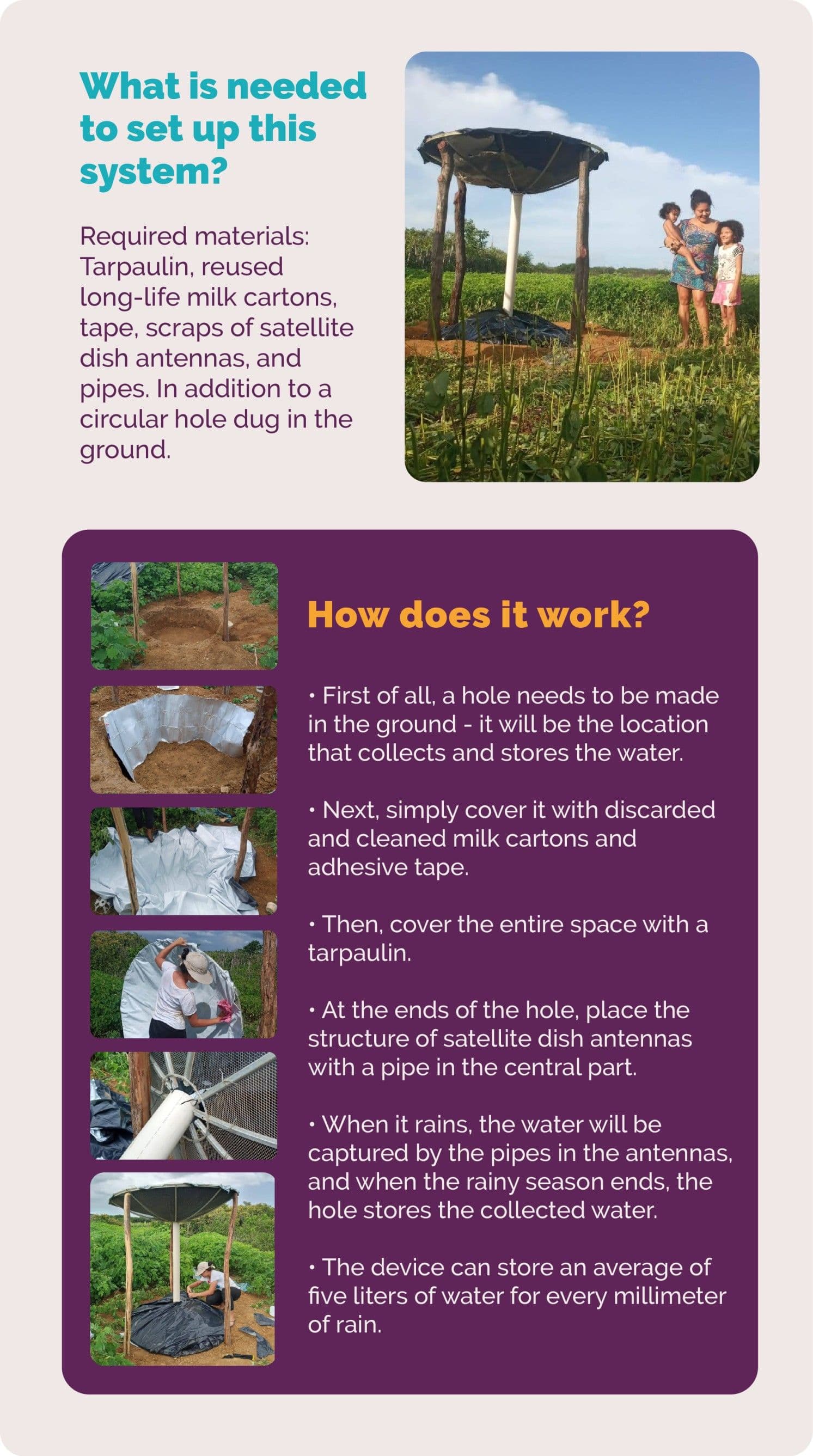
And how did this idea come about?
For the 18-year-old student, who is finishing high school, winning the International Award For A World Without Waste was the culmination of a three-year study. “When I entered high school, my teacher started encouraging me to do projects. I always thought that doing science was very difficult, but science is in everything,” she says.
It was with this mindset that they created the project that brought home the unprecedented award from the Circular Movement. “Our first project created a tactile floor with recycled glass and plastic, but when we finished that work, my teacher, Antônio Serginaldo, suggested that we do another research - something different,” says Vitória Sabrina.
“There was no more severe drought than usual, nor anything to give us the idea for the project. But drought is something that we here in the semi-arid region have lived with forever. It is a reality that we experience here, that my relatives and the relatives of my teacher have already gone through and still go through very frequently,” she says. According to Vitória, thinking about this was the starting point for her to start researching and thinking about solutions to bring water to those in need in the semi-arid region.
"We wanted to innovate and address a daily reality that is often overlooked. In my research, I observed that from 2019 to 2022, there was a significant reduction in investments for people in the semi-arid region - a cut of millions of reais. This left many people helpless, raising the alarm. It was time to broaden our vision and attention to this crucial issue. And that's when we started thinking and putting together what would become our project,” says the young woman.
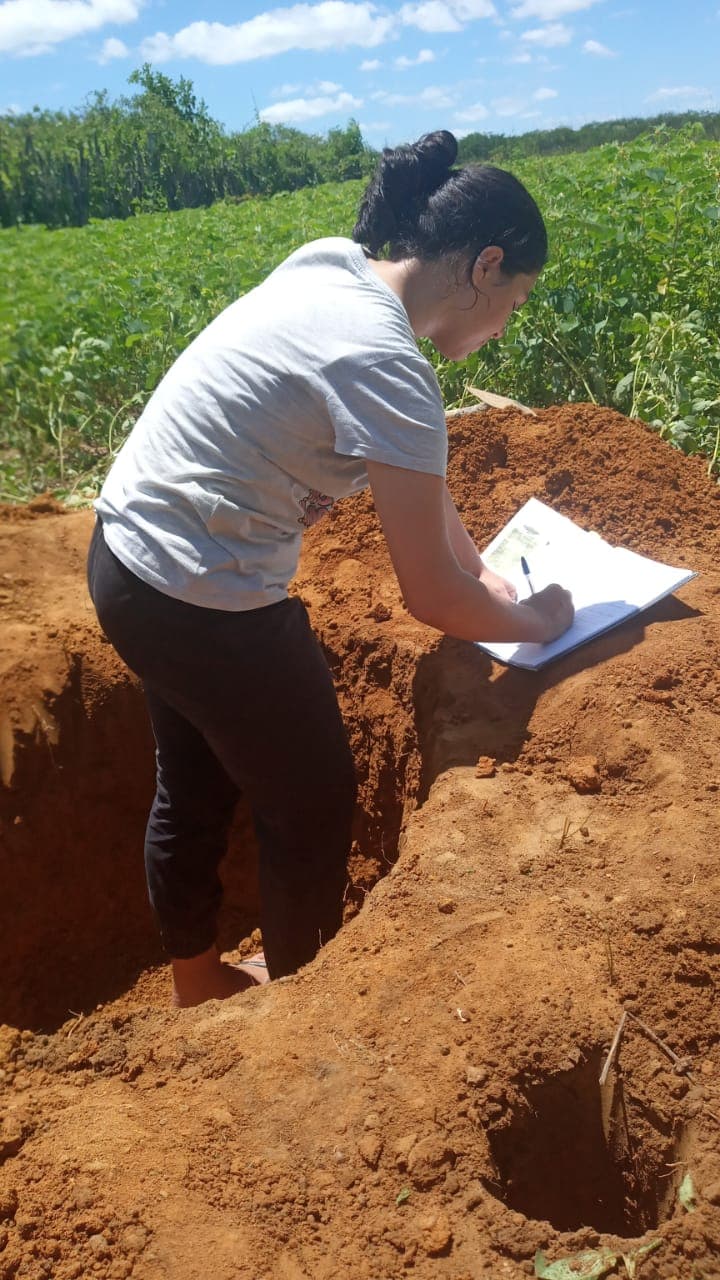
Victoria herself acknowledges that getting hands-on was one of the best things about the project. Image: Reproduction/Personal Collection
The project began in 2022 and was implemented in a settlement in the Pedra Branca community, also in Mossoró - where about 38 families live. In three houses, they installed the system - which, according to the student and creator, has an indefinite duration but should undergo "maintenance" in about a year.
“After the water is stored, and the rains pass, the hole we dug can be used as a water reservoir. However, when this reservoir dries up - which should be around the time the rainy season starts again, it is important to analyze the condition of the tarpaulin, milk cartons, all the materials. It is important to know if there is any material that needs to be replaced, etc.,” explains Vitória.
The water is not yet filtered, so it is not suitable for direct consumption. However, it can be used for various daily activities, such as washing dishes, cooking, watering crops, and performing other household tasks that do not involve ingestion.
For those in need, the fact that the system is low-cost is very important; this exemplifies the need to expand awareness of non-visible realities. “If you don't have water, something as basic, how can you afford to spend a lot to have access to this item?” emphasizes the student.
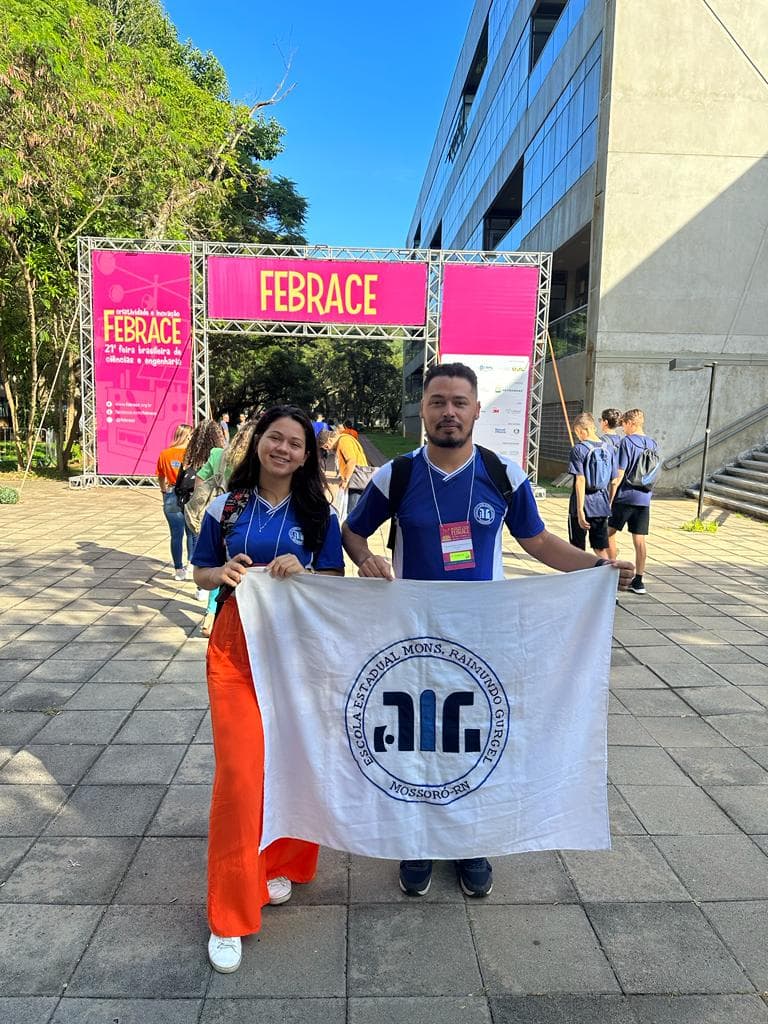
Vitória y el orientador, Serginaldo, en Febrace 2023. Imagen: Reproducción/Colección Personal.
What the initiative mentor says?
When asked, Professor Antônio Serginaldo comments on the project. “In the development, Vitória already had this notion that she wanted to work with some recyclable material. We were observing the problems we had in our daily lives, and she managed to combine the problem of water scarcity here with an environmental issue, in this case, the improper disposal of satellite dishes,” he explains.
For Serginaldo, the combination of these issues contributed to directing the work towards the problems of the people in that region, in addition to making use of materials that are already discarded in the area. For him, working with Vitória was a very good experience. “She is a very dedicated student in her studies, so working with her was gratifying because she dedicates herself a lot to projects,” he comments.
Circular Economy was not something new for the professor; however, it was not frequent either. “I had heard about Circular Economy, but I never delved into it until the meetings after the Febrace aroused my interest.” From then on, Serginaldo, who is a Sociology teacher, always sought to integrate the theme into his classes, bringing it into the everyday life of the discipline. He also comments on the possibilities that the International Award For A World Without Waste brought.
“The award not only mandates the approach of Circular Economy but also impacts my career, as I share this with my students. I am sure that Sabrina, in her daily life, also contributes to this growth in a school where this was little discussed. The award was transformative, introducing this theme into our classroom contents. I thank the Circular Movement, which, in addition to the award, provided significant results, enriching discussions on this topic with the youth in our public schools,” he reports.
“The award itself was fantastic. When we won the national stage at Febrace, we were already very happy because we were bringing a very important award to our state. And when we won the international stage, our school was in celebration because it is the first international award that we achieved. And the importance, as Sabrina herself mentioned, that the award brings a responsibility, which is the responsibility of caring for the environment, of being concerned with environmental issues. So, it was incredible. I can't, until today, describe how important that was and is, both for me, as a teacher, and for her, who is a student,” he concludes the interview.
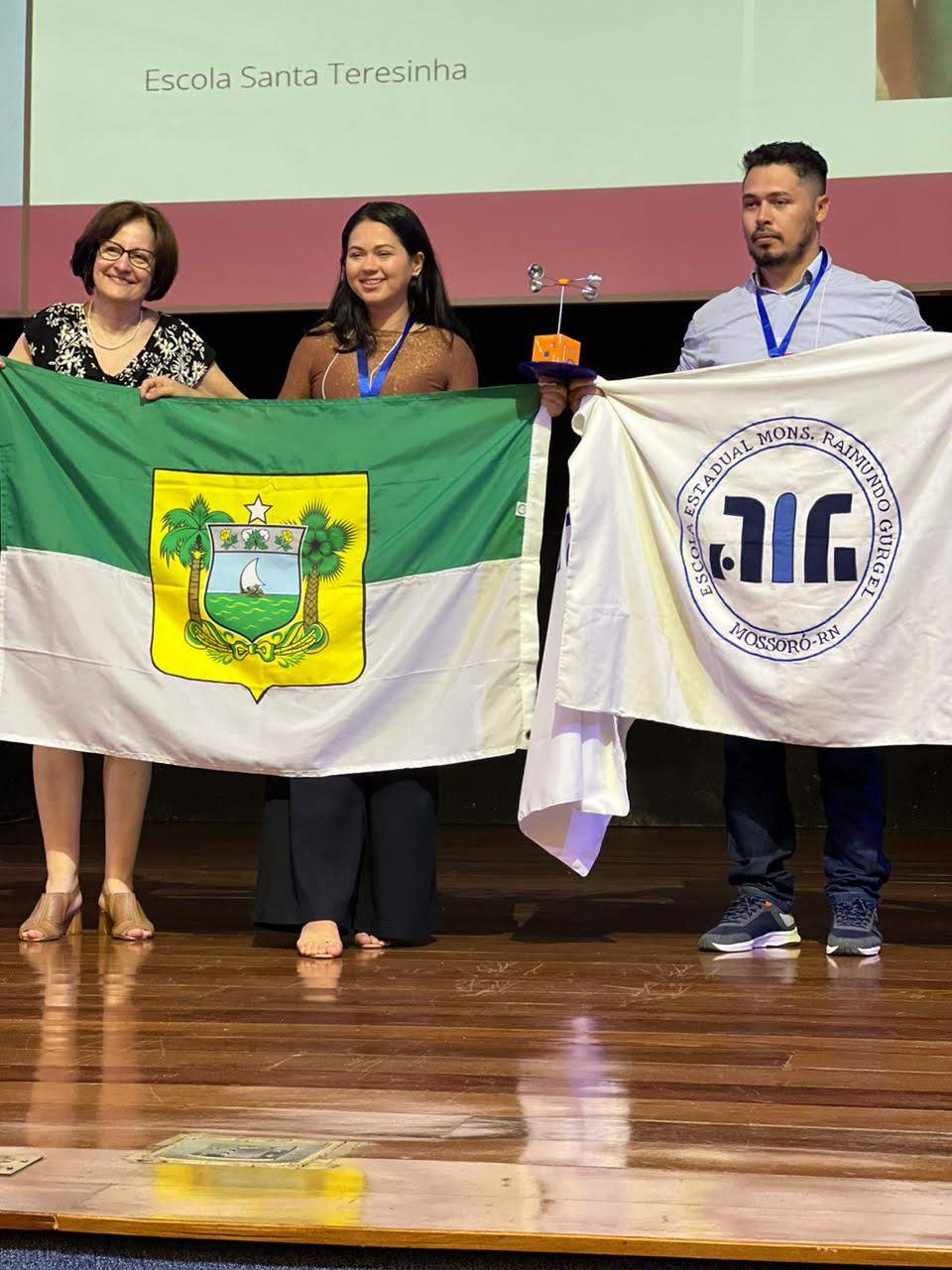
The project's recognition. Image: Reproduction/Personal Collection
Thinking and practicing Circular Economy before knowing what it is…
The victory of the project "Low-Cost Rainwater Collection and Storage System" at the 1st International Award For A World Without Waste stands out as an exemplary achievement of Circular Economy and demonstrates that, even before fully understanding the concept, the practical application of the term is something that can generate significant and inspiring changes.
“I didn't even know I was contributing to Circular Economy until I met the Circular Movement at the Brazilian Science and Engineering Fair (Febrace),” comments Vitória. According to her, “each moment was a construction, a foundation for her personal and professional growth. Participating in Febrace and getting to know the Circular Movement not only gave me the chance to share ideas but also fueled the hope that I can contribute significantly to the world around me.”
The student's project incorporates reused and very low-cost materials, presenting a sustainable and accessible solution to a real and serious problem. The victory in the award marks the integration of Circular Economy into education and highlights the potential positive impact of this approach in various areas of society.
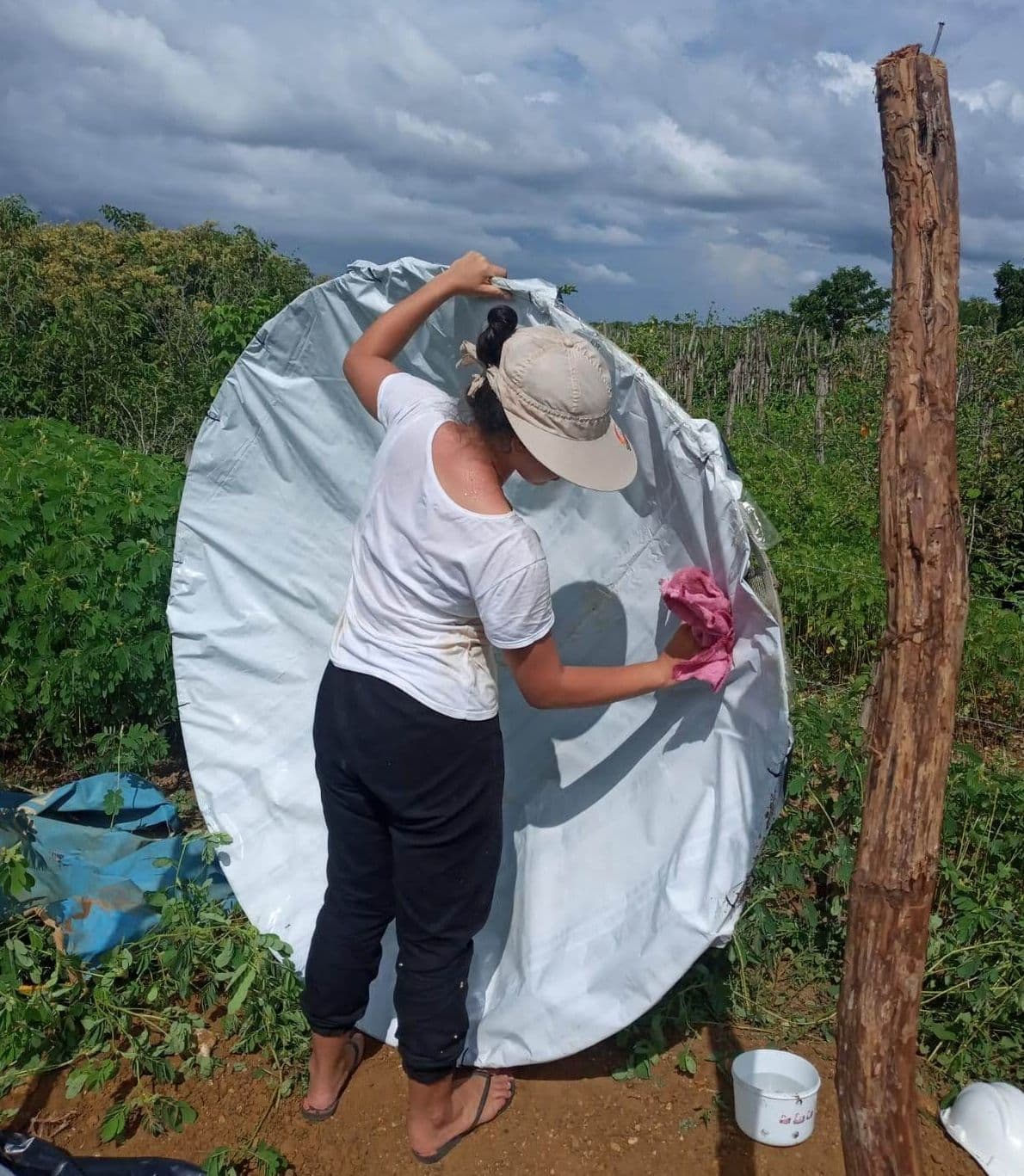
Vitória saw unused satellite dishes and wondered, 'Why not use them?' Image: Reproduction/Personal Collection
“I thank every person, every experience that shaped this journey. I am very excited to explore new opportunities and continue to grow, carrying forward the inspiring spirit that Febrace brought me and that the Circular Movement reinforced. Can you believe I'm still in doubt about what to do in college because of all this? I always thought about studying psychology or pedagogy, but today I also think about engineering, etc.”
The opportunities that present themselves to Vitória are the result of this continuous commitment to learning and innovation. The international recognition received by the young woman is a celebration of this innovation as a renewed commitment to circular practices.
And you? Do you want to learn more about Circular Economy?
If you are interested in learning more about this topic, access the Circular Academy, the first free Latin American course on Circular Economy aimed at the general public. All of us, in partnership and collaboration, can make a difference in building a more circular planet.
